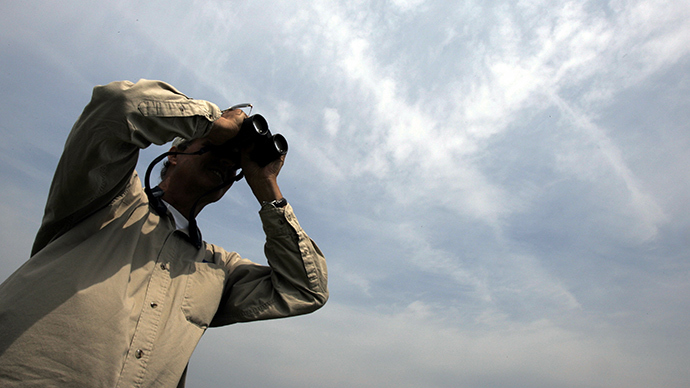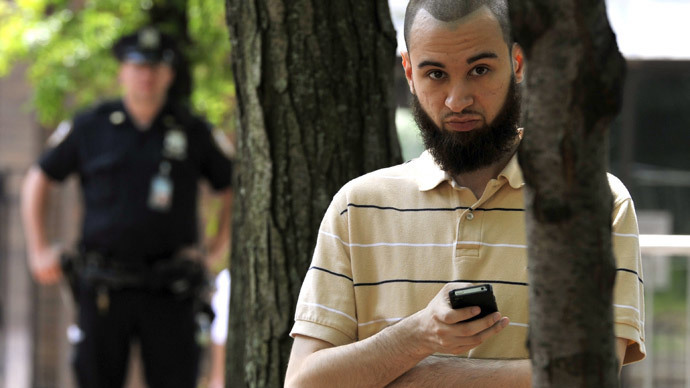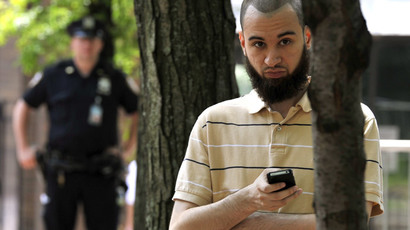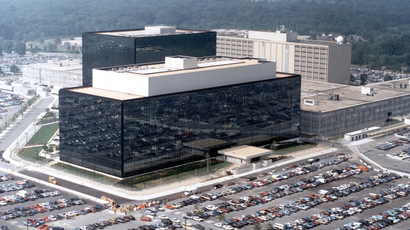Five men suing Obama administration after falling into ‘suspicious activity’ file

From photographing public works of art to bulk-buying computers, five Americans now have a record on file with US intelligence agencies for carrying out everyday activities. Thousands of unsuspecting Americans are also tagged in the database.
The lawsuit, filed by five Americans whose personal data has been entered into anti-terror databases for engaging in lawful behavior, aims to impose a “permanent injunction” on a government program that “targets First Amendment-protected activity, encourages racial and religious profiling, and violates federal law.”
US rights groups condemn NSA spying on Muslim-Americans
Since 2013, over 35,000 US citizens have had their personal information stored away on terrorism databases - like the FBI's eGuardian – where they remain on file for up to 30 years. The disturbing trend of innocent Americans being ensnared in the intelligence network has its origins in the post-9/11 era when liberty-crippling legislation, like the US PATRIOT Act, turned every citizen into a potential suspect.
The Government Accounting Office, in its 2013 annual report, found that all 78 DHS fusion centers can contribute or share information on the platform; 21 of the fusion centers share the data directly with the FBI.
James Prigoff, a photographer from Sacramento, California, perhaps understands the hidden pitfalls of America’s brave new security apparatus better than anyone.
Prigoff, one of five plaintiffs filing a lawsuit in California against Attorney General Eric Holder and a member of the Justice Department, had a member of the joint-terrorism task force show up at his door after he had traveled to Boston to snap photos of the Rainbow Swash, a 140-foot gas storage tank covered in rainbow stripes. While photographing the public work of art, Prigoff was confronted by security guards, who proceeded to fill out a “suspicious activity report” on the California photographer.
"This is supposed to be a free country, where the government isn’t supposed to be tracking you if you’re not doing anything wrong,” Prigoff said in a statement. “I lived through the McCarthy era, and I know how false accusations, surveillance, and keeping files on innocent people can destroy careers and lives.
“I am deeply troubled that the SAR program may be recreating that same climate of false accusation and fear today."
You could land in an FBI database for photographing which: a) bridge b) public art c) post office d) ALL OF THE ABOVE pic.twitter.com/nr8BQ8th72
— ACLU National (@ACLU) July 10, 2014
Other plaintiffs in the lawsuit include an accountant of Egyptian descent who said a “suspicious activity report” was filed about him after he tried to make a bulk computer purchase for work from Best Buy. Another, a man of Pakistani descent, said he was tagged while waiting for his mother — who was wearing a hijab, a formal head covering — outside the bathroom of a train station.
According to its website, the initiative attempts to pinpoint behavior that is: "reasonably indicative of preoperational planning related to terrorism or other criminal activity." Civil liberty groups, however, say the initiative opens the door to possible abuses of power.
“We’ve long been concerned that the federal standards that we’re challenging in this lawsuit are too loose because they allow the reporting of information even when there’s no reasonable suspicion of criminal activity,” Linda Lye, staff attorney for the ACLU, one of several watchdog groups that initiated the suit.

Justice Department spokeswoman Nicole Navas said the department was reviewing the lawsuit “and it would be inappropriate to comment further at this time.”
Meanwhile, John Cohen, a former homeland security official who helped devise the joint-terrorism prevention program, called the ACLU’s lawsuit ironic because the civil rights group was actually involved in its development.
“They are attacking a program that they helped to design, and they are criticizing language that they actually drafted and provided to the government,” Cohen, now a professor at Rutgers University’s school of criminal justice, told the Daily News.
The nation’s controversial “suspicious activity” program has come under scrutiny before.
A 2012 Senate report said that fusion centers had used dubious methods to collect data on Americans, while producing little significant intelligence on criminal activity and terrorism.
A March 2013 Government Accountability Office study revealed that the Justice Department office in charge of supervising the suspicious-activity program does not account for "their role in deterring terrorist activities or the number of arrests or convictions achieved."














